This fall, the College of Engineering proudly welcomes 17 new faculty members. These innovative scholars hold expertise in fields as diverse as nanomaterials, AI ethics, quantum photonics and cardiac mechanics. They join a world-class community of researchers and educators dedicated to advancing engineering for the public good.
Chemical Engineering Civil & Environmental Engineering Computer Science & Engineering Electrical & Computer Engineering Human-Centered Design & Engineering Industrial & Systems Engineering Mechanical Engineering
Chemical Engineering
Nada Naser
Assistant Teaching Professor, Catherine M. and Scott C. Roberts Faculty Fellow, Department of Chemical Engineering
Education
Ph.D. Chemical Engineering, University of Washington, 2024
M.S. Chemical Engineering, University of Washington, 2022
B.S. Chemical Engineering, Montana State University, 2019
Nada Naser joins Chemical Engineering as an assistant teaching professor and the Catherine M. and Scott C. Roberts Faculty Fellow after completing her Ph.D. at the UW. Her teaching integrates hands-on learning with inclusive practices in thermodynamics and nanomaterials. She has received the McCarthy Teaching Award, was named to the Husky 100, and has led outreach with Women in Chemical Engineering and the Clean Energy Institute.
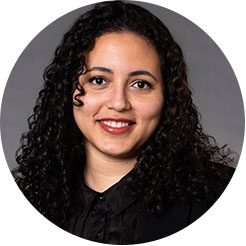
Research focus
Nanomaterials, molecular engineering, soft matter, engineering education and pedagogy, inclusive teaching, outreach and mentorship
Civil & Environmental Engineering
Nicoleta Cristea
Research Assistant Professor, Civil & Environmental Engineering and eScience Institute
Education
Ph.D. Civil & Environmental Engineering, University of Washington
M.S.E. Civil & Environmental Engineering, University of Washington
B.S./M.S. Hydropower and Environmental Engineering, University POLITEHNICA of Bucharest
Nicoleta Cristea was previously a senior research scientist in Civil & Environmental Engineering and the eScience Institute, where she remains as a research assistant professor. Cristea’s research uses physics-based models, machine learning, and high-resolution remote sensing to study the effects of climate change. She co-developed community data science programs such as GeoSMART and Waterhackweek, and supports open-source research in geosciences.
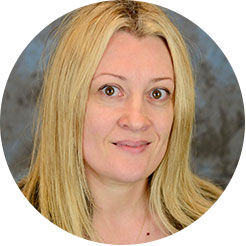
Research focus
Hydrologic modeling, machine learning, remote sensing
Paul G. Allen School of Computer Science & Engineering
Mitali Bafna
Assistant Professor, Paul G. Allen School of Computer Science & Engineering
Education
Ph.D. Computer Science, Harvard University, 2022
B.Tech. and M.Tech. Computer Science, IIT Madras, 2017
Mitali Bafna joins the Allen School from the Massachusetts Institute of Technology, where she was an instructor in applied mathematics. She previously held postdoctoral positions at Carnegie Mellon University and has been a research fellow at the Simons Institute at UC Berkeley.
Bafna’s research explores foundational problems in theoretical computer science, with a focus on computational complexity and algorithms. She has contributed to breakthroughs in probabilistically checkable proofs, high-dimensional expanders, and hardness of approximation. Her work has been recognized with a Best Paper Award at STOC and the Siebel Scholars Award.
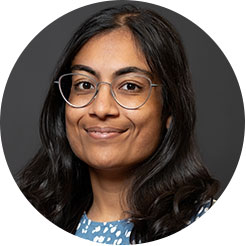
Research focus
Computational complexity theory, algorithms
Naomi Alterman
Assistant Teaching Professor, Paul G. Allen School of Computer Science & Engineering
Education
M.S. Electrical Engineering (Computer Networking), Stanford University, 2014
B.S. Electrical Engineering (Computer Software), Stanford University, 2012
Naomi Alterman joins the Allen School from the UW’s eScience Institute, where she served as a technical education specialist and data science fellow. With a background in systems software and computer networking, Alterman’s work focuses on inclusive teaching practices and building communities of practice in STEM education.
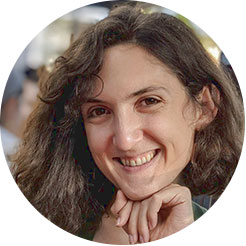
Research focus
Inclusive pedagogy in postsecondary STEM education, engineering communities of practice, systems software, digital logic
Megan Hazen
Associate Teaching Professor, Paul G. Allen School of Computer Science & Engineering
Education
Ph.D. Electrical Engineering, University of Washington
M.S. Mechanical Engineering, Carnegie Mellon University
B.S. Mechanical Engineering, Carnegie Mellon University
Megan Hazen joins the Allen School faculty after leading the MSDS capstone program, and teaching in data science and computer science since 2019. With more than 15 years of experience in intelligent systems, deep learning and global optimization, her teaching emphasizes ethical, inclusive and application-driven learning, and she has collaborated on AI education programs across academia and industry.
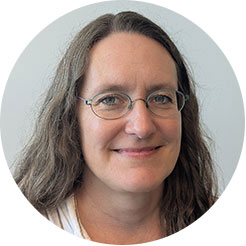
Teaching focus
Capstone education, data science pedagogy, AI ethics, computational methods
James Weichert
Assistant Teaching Professor, Paul G. Allen School of Computer Science & Engineering
Education
M.S. Computer Science, Virginia Tech, 2025
B.A. Computer Science, University of California, Berkeley, 2023
B.A. Data Science, University of California, Berkeley, 2023
James Weichert joins the Allen School as an assistant teaching professor from Virginia Tech, where he earned his M.S. in computer science and served as a researcher in the Machine Learning Lab. Weichert’s teaching and research focus on computing education and the ethical and societal impacts of AI. His recent work includes NSF-funded research on AI ethics education and publications on student attitudes and competencies related to AI.
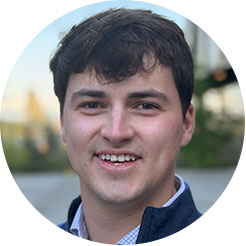
Research focus
Introductory programming, data science education, AI ethics and policy
Electrical & Computer Engineering
Vasileios Charisopoulos
Assistant Professor, Electrical & Computer Engineering
Education
Ph.D. Operations Research & Information Engineering, Cornell University, 2023
B.S./M.Eng. Electrical & Computer Engineering, National Technical University of Athens, 2017
Vasileios Charisopoulos joins Electrical & Computer Engineering from the University of Chicago, where he was a postdoctoral scholar at the Data Science Institute. He has also held research internship positions at Google Research, Google Cloud, and INRIA Paris-Saclay.
Charisopoulos’ research develops computationally efficient and robust methods for large-scale optimization and scientific computing, with applications to data science, signal processing, and machine learning. He is a recipient of the Rising Star in Computational and Data Sciences award from the Oden Institute, multiple teaching awards from Cornell University, and the Andreas G. Leventis Scholarship.
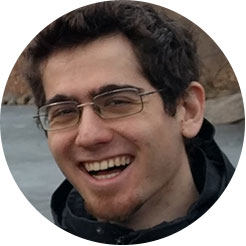
Research focus
Continuous optimization, high-dimensional statistical estimation, numerical linear algebra
Jing Yu
Assistant Professor, Electrical & Computer Engineering
Education
Ph.D. Control and Dynamical Systems, California Institute of Technology, 2024
B.S. Mechanical Engineering, Georgia Institute of Technology, 2017
Jing Yu joins Electrical & Computer Engineering from the University of Illinois Urbana-Champaign and the University of Michigan, where she held postdoctoral appointments after receiving her Ph.D. at Caltech.
Yu’s research focuses on control and data-driven methods for large-scale cyber-physical systems, particularly in sustainable energy. She has developed distributed and online decision-making algorithms to improve the safety and efficiency of modern energy infrastructure. Her work has been recognized with the Amazon AI4Science Fellowship, the ACM SIGEnergy Doctoral Dissertation Award Honorable Mention, and the Caltech Amori Doctoral Prize.
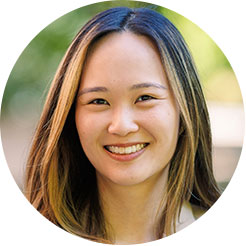
Research focus
Control and learning for dynamical systems, power and energy systems
Johannes E. Fröch
Research Assistant Professor, Electrical & Computer Engineering
Education
Ph.D. Physics, University of Technology Sydney, 2021
M.Sc. Technical Physics, Technical University of Graz, 2017
M.Sc. Advanced Materials Science, Technical University of Graz, 2016
B.Sc. Technical Physics, Technical University of Graz, 2014
Johannes Fröch was previously a postdoctoral researcher in Physics and Electrical & Computer Engineering. His research explores nanophotonics and meta-optics for biomedical and quantum applications, including ultra-small endoscopes, hyperspectral imaging, and wearable health monitoring. His work has been published in Light: Science & Applications, Nature Communications, and Optica, with awards including the AIP NSW Postgraduate Award and the Australian Nanotechnology Network Travel Grant.
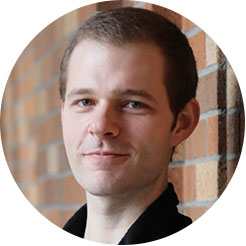
Research focus
Nanophotonics, meta-optics, biomedical imaging, computational imaging, quantum photonics
Human-Centered Design & Engineering
Emily Tseng
Assistant Professor, Human-Centered Design & Engineering
Education
Ph.D. Information Science, Cornell University, 2024
M.S. Information Science – Health Tech, Cornell Tech, 2019
B.A. Ecology & Evolutionary Biology, Princeton University, 2014
Emily Tseng joins Human-Centered Design & Engineering from Microsoft Research New England, where she was a postdoctoral researcher with the Social Media Collective.
Tseng’s research focuses on sociotechnical safety and the design of systems to mitigate technology-mediated harm, especially in contexts of vulnerability such as intimate partner violence. Recent projects focus on participatory approaches to AI safety, including AI systems for journalist cooperatives. She has received awards from ACM CHI, CSCW, and USENIX Security, along with the Microsoft Research PhD Fellowship and third place in the Internet Defense Prize.
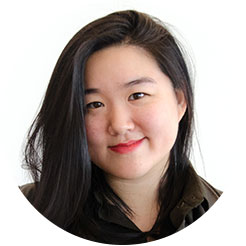
Research focus
Technology-mediated harm, sociotechnical safety, trauma-informed computing, HCI, privacy and security
Industrial & Systems Engineering
Gian-Gabriel Garcia
Assistant Professor, Industrial & Systems Engineering
Education
Ph.D. Industrial & Operations Engineering, University of Michigan, 2020
M.S. Industrial & Operations Engineering, University of Michigan, 2016
B.S. Industrial Engineering, University of Pittsburgh, 2014
Gian-Gabriel Garcia joins Industrial & Systems Engineering from Georgia Tech, where he was the Harold E. Smalley Early Career Professor in the H. Milton Stewart School of Industrial and Systems Engineering. He also served as a postdoctoral fellow at Harvard Medical School.
Garcia’s research develops data-driven, interpretable and equitable modeling frameworks to support high-impact decisions in medicine and health policy. His work spans concussion management, chronic diseases, the opioid crisis and maternal health, and is supported by funding from NIH, AHRQ and Children’s Healthcare of Atlanta. He is a recipient of multiple national awards, including first prize in the INFORMS Minority Issues Forum Paper Competition, the IISE Transactions Best Paper Award in Operations Engineering and Analytics and the SMDM Lee B. Lusted Prize in Quantitative Methods and Theoretical Developments.
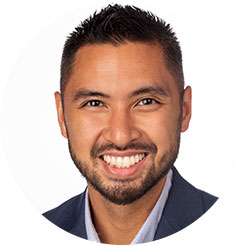
Research focus
Medical decision-making, health policy analytics, interpretable machine learning, stochastic modeling, optimization, sequential decision-making
Dan Li
Assistant Professor, Industrial & Systems Engineering
Education
Ph.D. Industrial Engineering, Georgia Institute of Technology, 2021
M.S. Statistics, Georgia Institute of Technology, 2020
B.S. Automotive Engineering, Tsinghua University, 2015
Dan Li joins Industrial & Systems Engineering from the University of Wisconsin–Madison, where she served as an assistant professor. She previously held faculty and research appointments at Clemson University and earned her doctorate at Georgia Tech.
Li’s research develops data-driven algorithms to improve the cyber-physical resilience of critical infrastructure systems. She is a recipient of the NSF CAREER Award and the Best Application Paper Award from IISE Transactions, and has been recognized with multiple best paper awards across INFORMS and IISE communities.
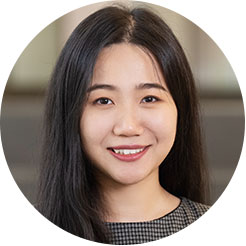
Research focus
Cyber-physical security, anomaly detection, resilient systems, machine learning for IoT-enabled infrastructure
Stefania Fresca
Assistant Professor, Mechanical Engineering
Education
Ph.D. Mathematical Models and Methods in Engineering, Politecnico di Milano, 2021
M.Sc. Mathematical Engineering, Politecnico di Milano, 2017
B.Sc. Mathematical Engineering, Politecnico di Milano, 2014
Stefania Fresca joins Mechanical Engineering from Politecnico di Milano, where she served as a junior assistant professor in numerical analysis and a researcher at the MOX Laboratory for Modeling and Scientific Computing. She recently completed a visiting appointment at the University of Cambridge.
Fresca’s research focuses on physics-based machine learning and deep learning-based reduced order modeling for engineering and biomedical applications. Her work on operator learning and cardiac modeling has been widely recognized, including a runner-up best Ph.D. award in biomedical engineering at CMBE22 and top-cited papers in computational engineering journals.
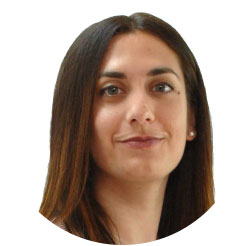
Research focus
Scientific machine learning, reduced order modeling, physics-consistent and structure-preserving neural networks, multiscale deep learning
Mechanical Engineering
Monica Li
Assistant Professor, Mechanical Engineering
Education
Ph.D. Mechanical Engineering, University of California, Berkeley, 2023
M.S. Mechanical Engineering, University of California, Berkeley, 2018
B.S. Mechanical Engineering, California Institute of Technology, 2016
Monica Li joins Mechanical Engineering from Berkshire Grey, where she worked as a research scientist developing robotic grippers. She also held a postdoctoral appointment in the Faboratory at Yale University.
Li’s research focuses on the physical interface between robots and their environment, including tactile sensing, soft contact dynamics, and grasping. She is a NASA Space Technology Research Fellow and was named a RoboSoft Rising Star.
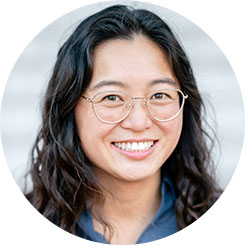
Research focus
Soft robotics, tactile sensing, grasping and dexterous manipulation
Yaodong Li
Assistant Professor, Mechanical Engineering
Education
Ph.D. Physics, University of California, Santa Barbara, 2022
B.S. Physics, Fudan University, 2016
Yaodong Li joins Mechanical Engineering from Stanford University, where he was a Bloch Postdoctoral Fellow studying condensed matter physics and quantum error correction. He also held an internship at IBM Research.
Li’s research interests lie at the intersection of quantum information and many-body physics. He has explored novel collective dynamics of non-equilibrium quantum systems, and seeks to advance the development of robust quantum information processors.
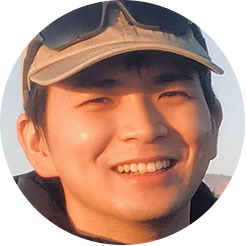
Research focus
Quantum information, quantum many-body physics, condensed matter physics
Ashish Manohar
Assistant Professor, Mechanical Engineering
Education
Ph.D. Mechanical Engineering, UC San Diego, 2022
M.S. Mechanical Engineering, UC San Diego, 2017
B.E. Mechanical Engineering, R.V. College of Engineering, 2015
Ashish Manohar joins Mechanical Engineering from Stanford University, where he was a postdoctoral scholar in the division of cardiovascular medicine.
Manohar’s research focuses on medical imaging algorithms that enhance four-dimensional computed tomography for precise assessment of cardiac structure and function. His work aims to improve the diagnosis and treatment of cardiovascular disease. He is a recipient of fellowships from the American Heart Association and the Siemens Young Scientist Award from SPIE Medical Imaging.
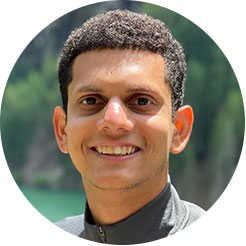
Research focus
Medical imaging physics, image analysis, computed tomography, cardiovascular imaging, cardiac mechanics
Sirine Maalej
Assistant Teaching Professor, Mechanical Engineering
Education
Ph.D. Mechanical Engineering, Centrale Lille, 2010
M.S. Computational Mechanics, École Polytechnique de Tunisie, 2007
B.S. Complex Systems, École Polytechnique de Tunisie, 2006
Sirine Maalej joins the Mechanical Engineering faculty as an assistant teaching professor, bringing over a decade of teaching experience and a strong research background in HVAC optimization and building energy systems. She teaches courses in mechanics of materials and engineering design, with a focus on hands-on laboratory work and industry-driven capstone projects.
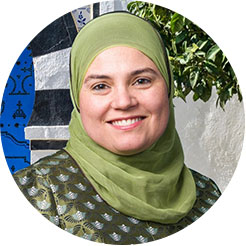
Research focus
Applied mechanics, manufacturing processes, design integration, hands-on learning, industry-focused capstone projects
Originally published September 26, 2025